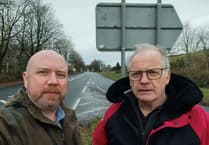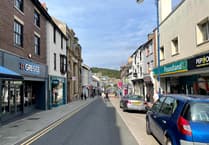A SCHEME which could see drug users in North Wales given prescribed heroin will help save lives and reduce crime, according to the region’s Police and Crime Commissioner.
Former police inspector Arfon Jones is pushing for support to introduce a Heroin Assisted Treatment (HAT) scheme in the area following similar trials in Glasgow and Teesside.
It would allow people with problematic drug use to be given medical-grade heroin at special centres where they can inject themselves twice a day, seven days a week.
Mr Jones, a long-time campaigner for drug reform, held an online conference yesterday (Monday, 2 November) to raise awareness of the initiative.
The virtual gathering heard from a number of expert speakers, many of whom backed the introduction of the pilot in North Wales.
The Welsh Government has given public bodies across the country the green light to consider HAT services, although a representative said they could prove to be costly and controversial.
However, the Plaid Cymru commissioner said it was time for people to stop stigmatising drug users and start supporting them.
Mr Jones said: “The focus for far too long has been on the legality of these substances, with those who are struggling to function on a daily basis being ostracised because taking drugs is their only escape.
“If we are really to make a difference, we need to recognise that taking drugs is not a lifestyle choice as some would have us believe, but rather an illness that can be treated.
“Today we challenge these opinions, and we will demonstrate how providing alternatives to illegal street drugs can reduce demand on services, reduce the organised crime market, but most importantly save lives.”
The latest government figures show that the number of drug related deaths in Wales dropped by around 21 per cent in 2019 compared the previous year.
Despite the downward trend elsewhere, North Wales saw an increase from 36 to 39 deaths where drug poisoning and misuse was cited as the main cause.
Mr Jones said the problem had been made worse by County Lines drug gangs operating in the region, who use children and vulnerable people to transport illegal substances from the north west of England.
He said: “The market is currently in the hands of criminals who are continually exploiting vulnerable people.
“This includes the exploitation of children and young people who are being exploited through the County Lines so-called business model.
“It’s estimated that the North Wales County Lines market receives £32m each year, resulting in the exploitation of vulnerable individuals.
“Harm reduction is key to changing perspectives and providing support for the most vulnerable in our society.”
Speaking at the conference, the Welsh Government’s deputy director of substance misuse policy Tracey Breheny said: “We understand that HAT as an option is an evidence based approach and I’m sure that the expert contributions today will be really informative around that.
“However, we also understand that this is an area of treatment that’s undoubtedly controversial and based on evidence used, only for a small cohort of individuals who may not have responded well to other treatments.
“By its very nature and given the requirement to offer supervised consumption, it also can be expensive.”
Whilst drawing attention to the pitfalls, she said it was to the credit of agencies in the region that solutions to drug addiction were being explored.





Comments
This article has no comments yet. Be the first to leave a comment.